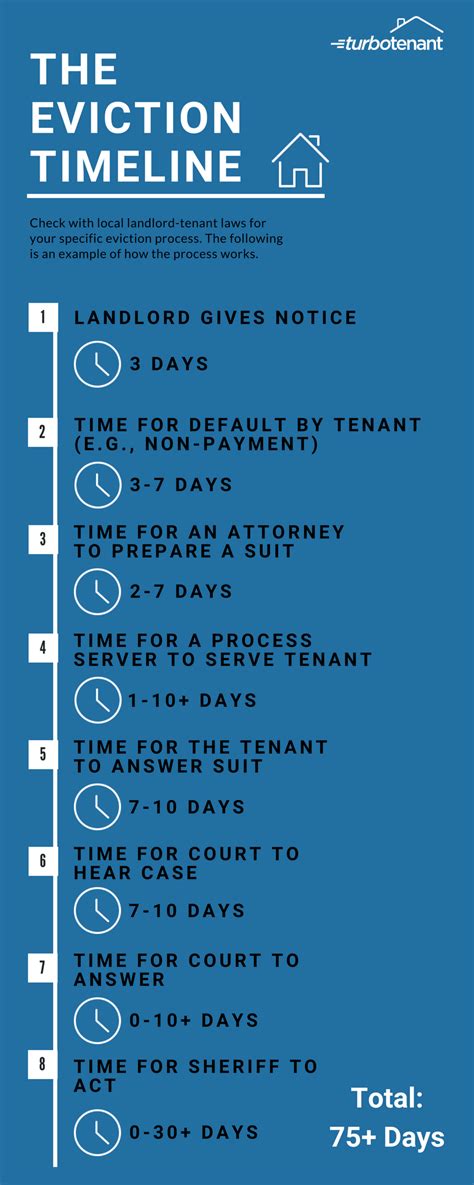Eviction: Decoding the Sheriff's Timeline and Process
Eviction is a complex legal process, and understanding the sheriff's role within that process is crucial for both landlords and tenants. The sheriff's involvement marks the final stage, the execution of a court order. This article will break down the sheriff's timeline and process in evictions, addressing common questions and concerns. While specifics vary by state and locality, the general principles remain consistent. This information is for educational purposes and should not be considered legal advice. Consult with a legal professional for advice specific to your situation.
What is the Sheriff's Role in an Eviction?
The sheriff, or a designated law enforcement officer, is responsible for carrying out the court's order of eviction. This isn't about collecting rent or mediating disputes; it's the enforcement of a legally binding judgment. Once a court has ruled in favor of the landlord, issuing a writ of possession, the sheriff steps in. Their role is solely to physically remove the tenant and their belongings from the property. They do not make judgments about the fairness of the eviction; their job is to execute the court's order.
What Happens Before the Sheriff Arrives?
Before the sheriff's involvement, a lengthy legal process usually unfolds:
- Legal Notice: The landlord must legally notify the tenant of the eviction proceedings, usually providing ample time to vacate the premises. The required notice period varies by state and the reason for eviction.
- Court Proceedings: The landlord files an eviction lawsuit with the court. The tenant has the right to appear in court and defend themselves.
- Court Judgment: If the court rules in favor of the landlord, it issues a writ of possession, which authorizes the sheriff to evict the tenant. This writ outlines the specific details of the eviction, including the date and time.
- Sheriff's Notice: Often, the sheriff, or a process server acting on their behalf, will provide the tenant with further notification of the impending eviction, sometimes specifying a narrow window for removal.
How Long Does the Sheriff's Eviction Process Take?
The timeline for the sheriff's actions can vary. Some jurisdictions allow for immediate eviction after the writ is issued, while others require a waiting period (often a few days). The actual process of the sheriff's visit and removal usually takes a relatively short period, from a few hours to a full day, depending on the complexity of the situation. Factors influencing the duration may include:
- Tenant Cooperation: A peaceful and cooperative tenant significantly shortens the process. If the tenant vacates before the sheriff arrives, the process is complete.
- Presence of Belongings: The more belongings a tenant possesses, the longer it will take to remove them. The sheriff often works with a moving company to expedite this process.
- Tenant Obstruction: If a tenant resists eviction, the process can become significantly longer and more complicated, potentially requiring law enforcement intervention.
What Happens When the Sheriff Arrives?
On the day of the eviction, the sheriff will typically arrive with law enforcement backup, and possibly a moving company. The sheriff will present the writ of possession.
- Peaceful Removal: The sheriff prioritizes a peaceful resolution. They will usually attempt to persuade the tenant to leave voluntarily.
- Removal of Belongings: If the tenant refuses to leave or if belongings are left behind, they will be removed and often placed in storage. The tenant is usually responsible for the storage fees.
- Legal Consequences of Resistance: Resisting eviction is a crime, and tenants can face arrest and further legal consequences.
What if the Sheriff Doesn't Show Up on the Scheduled Date?
Sometimes, unforeseen circumstances can cause a delay. The best course of action is to contact the court clerk's office to inquire about the status of the eviction and the sheriff's schedule.
Can the Sheriff Evict Me Without a Court Order?
No. A sheriff cannot evict a tenant without a valid court order (writ of possession). Any eviction without a court order is illegal.
What are My Rights During an Eviction?
While the sheriff is executing a court order, tenants still have certain rights. They should not be subjected to unnecessary violence or intimidation. Knowing your rights and the details of your specific eviction order is critical. Again, consulting with an attorney is strongly recommended.
Conclusion
The sheriff's role in an eviction is a serious matter, marking the culmination of a legal process. Understanding the timeline and procedures can help both landlords and tenants navigate this challenging situation. Remember, this information is for educational purposes only and should not substitute legal advice. Seeking legal counsel is strongly recommended for anyone facing an eviction.

